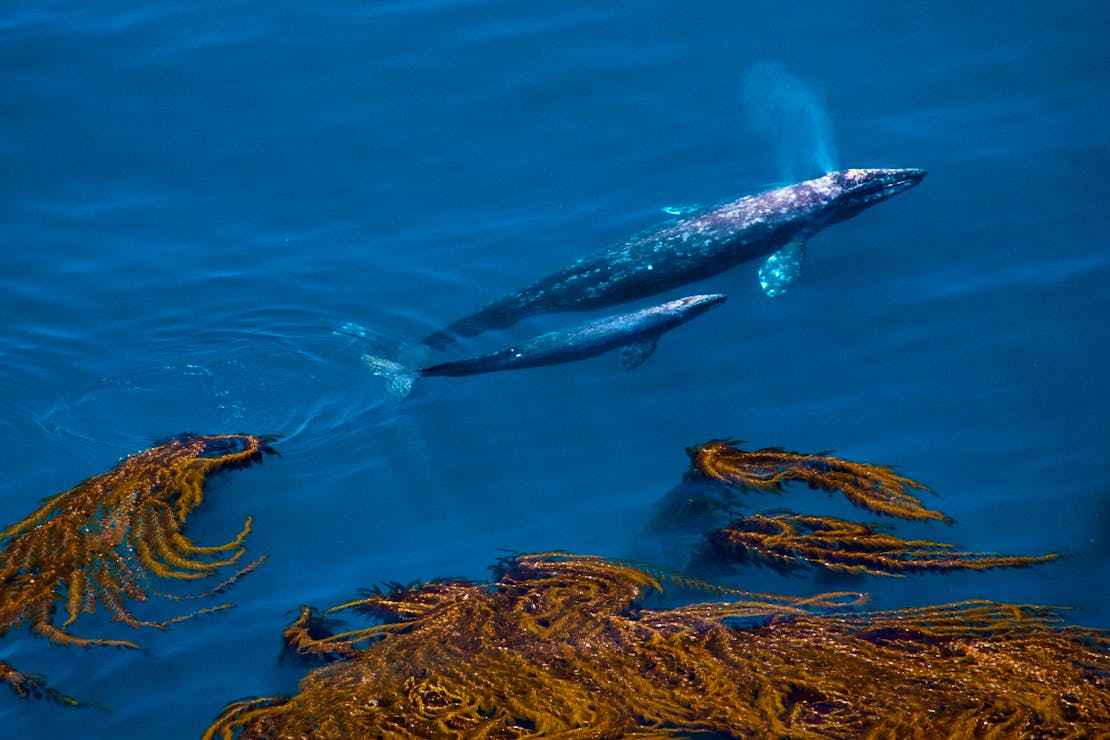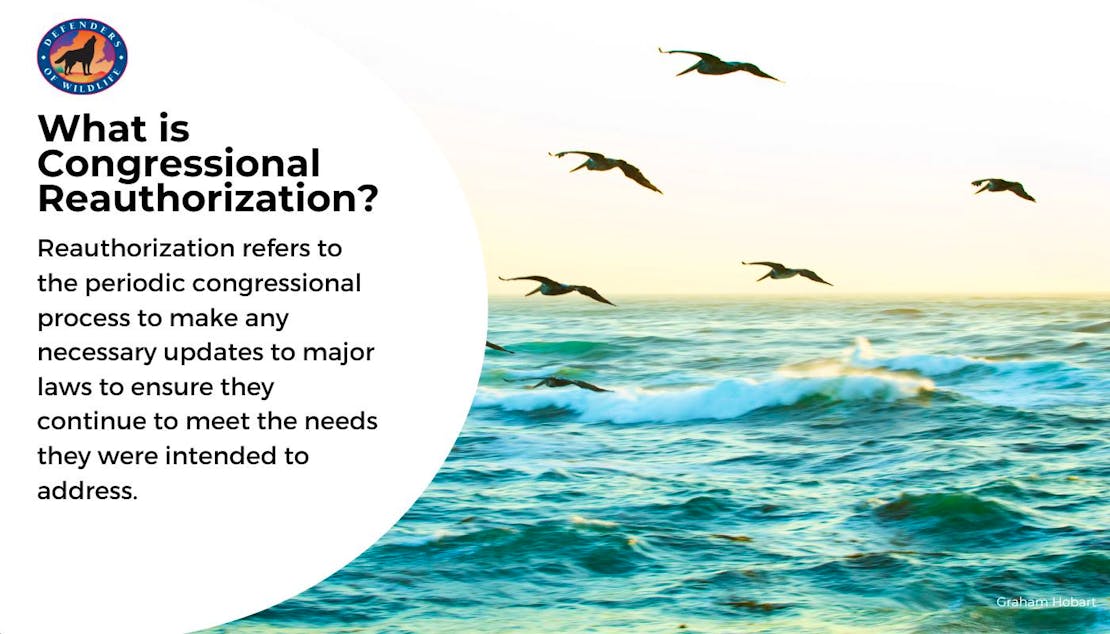A whale breaches the water’s surface, propelling himself out and then crashing back down spectacularly. A pod of orcas is on the hunt, working as a unit to take down their prey. A school of sleek bottlenose dolphins playfully race next to a boat sailing through the waves. A majestic polar bear pads softly across an ice block on the hunt for a seal. A handful of manatees graze among sea grass in a calm waterway.
These are just a few of the stirring images associated with our oceans. One thing all these iconic animals have in common is they are protected under the Marine Mammal Protection Act. The MMPA is one of the most successful conservation laws ever passed. But this year, this landmark law is at risk of being gutted — under the guise of “reform” — by some members of Congress.
To understand exactly why a significant weakening of the MMPA would be devastating to the protection of our beloved marine mammal species, it’s important to understand what the MMPA is and what it does.
What is the MMPA?
Enacted in 1972 with wide bipartisan support and signed into law by President Nixon, the MMPA is one of our most important, and successful, landmark conservation laws. In the more than a half century of its existence, not a single species in United States’ waters protected under the MMPA’s umbrella has gone extinct. That track record is impossible to top.
The MMPA has promoted the recovery of many imperiled species, including gray whales, humpback whales, gray seals, California sea lions, Northern elephant seals and manatees. But the fight to save and recover marine mammals is far from over, as these species face new threats, including climate change.
What does the MMPA do?
The MMPA protects all marine mammals in the U.S. by prohibiting activities that “harass, hunt, capture, or kill” them or attempt to do so. Exceptions can be made for incidental takes — harassment, injury or death — that may accompany otherwise lawful activities, like commercial fishing, military training exercises, industrial development, scientific research and capture for public display at aquariums.
This law helps keep vulnerable populations from diminishing to the point they require listing under the Endangered Species Act and helps recover depleted species. It does so, in part, by requiring regular monitoring of key indicators of species population health, such as abundance and distribution.
The MMPA promotes coordination with fishermen and scientists to reduce entanglements of marine mammals, which helps ensure our seafood is harvested sustainably. The MMPA also bans imports from foreign fisheries that do not meet U.S. bycatch standards, thereby helping prevent marine mammal deaths and injuries in foreign fishing fleets and leveling the playing field for U.S. fisheries.
Finally, the MMPA sets science-based standards for the take and import of live animals for public display, and directs that, in Alaska, only Alaskan Natives may harvest marine mammals for food, handicrafts and clothing, so long as the harvest is not wasteful.
There are economic benefits too
In addition to its massive conservation successes, the MMPA has had enormous economic benefits. For example, a 2020 study showed more than half a million tourists in Alaska spent $86 million on whale watching tours. The total economic footprint of whale watching in Alaska was estimated at $103 million. Another in San Juan County, Washington, showed whale watching contributes over $216 million in economic activity and more than $12 million in state and local tax revenue annually.1
In 2023, America's recreation marine economy — fueled in part by activities like whale watching, scuba diving, snorkeling and other forms of ecotourism — saw a 2.9% growth in its contribution to gross domestic product. Tourism and recreation provided the greatest value added at $225 billion.2
Why are some members of Congress attempting to eviscerate the MMPA?
While Congress has not reauthorized this historic conservation law since 1994, it should not hamstring the strength and effectiveness of the Act in an effort to do so.
The current draft MMPA reauthorization bill being promoted by some members of Congress has many deeply damaging provisions. For example, the draft downgrades the statute’s mandate from ensuring healthy marine mammal populations to simply ensuring mere survival. This would set the lowest possible bar short of extinction. It would drive population decline and potentially cause more marine mammals to require listing under the ESA.
The draft bill would also gravely weaken the legal standards for authorizing activities that kill and injure marine mammals and disrupt their vital life functions such as breeding, feeding and sheltering. It would prevent the U.S. Fish and Wildlife Service and the National Marine Fisheries Service, the agencies responsible for administering the statute, from requiring almost any kind of mitigation. For example, the proposed changes pave the way for oil and gas companies seeking to expand seismic testing and offshore oil drilling, which would threaten beloved animals the eastern seaboard’s North Atlantic right whale, Alaska’s polar bears and the Pacific Northwest’s southern resident orcas.
Additionally, the draft language undermines the science-based limits on marine mammal deaths in commercial fisheries and imposes significant limits on the authority to issue “necessary and appropriate” regulations for protecting marine mammals and carrying out the MMPA’s purposes.
If enacted in whole or in part, this draft bill will drastically undermine marine mammal conservation worldwide.
To those members of Congress who seek to gut these vital marine mammal protections, Defenders of Wildlife says not on our watch! Join us in speaking out to Congress to defend the remarkably successful MMPA and to stand firm in protecting our incredible marine life.
2 https://coast.noaa.gov/states/fast-facts/marine-economy.html












